Hello there! I'm Dhivyaa Kumar, a passionate content creator who loves bringing ideas to life through words, visuals, and storytelling. With a creative mind and a keen eye for detail, I strive to produce engaging and impactful content that resonates with my audience. Through my work, I strive to make a positive impact, whether it's by sharing valuable knowledge, promoting meaningful causes, or simply brightening someone's day with a touch of creativity.
Don't wanna be here? Send us removal request.
Text
Understanding the Basics of Search Engine Optimization!
Search Engine Optimization:
What is search engine optimization? It is a question that is asked repeatedly by people with a website. It sounds really important, the majority of people struggle because they are unsure of where to begin when it comes to search engine optimization for their website.
Search engine optimization consists of two processes. The first is getting a website configured so a search engine like Google can index it correctly and the second is making sure your website is in the top search results when someone Googles your products or brand names.
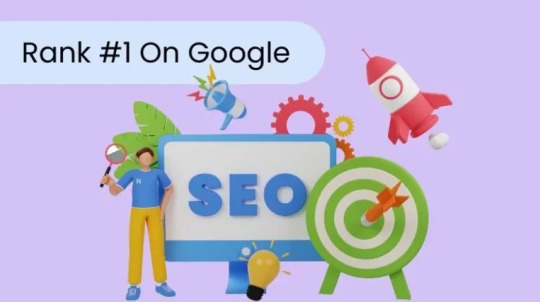
Understanding how Google and Bing work is a good place to start when learning how to optimize a website.
Understand What Search Is:
Since Google has only been around for a short while, search is still a relatively new concept. The best way to approach search is to see Google and Bing as online sources for reference. When someone visits their website and asks a question like "Who won best picture in 1948?" they search their index to find the proper reference and then present those answers to the user on their web page. They gather enormous quantities of data from websites all over the world and put it in an index.
However, how did they obtain that information, and how did Google know that Hamlet won the 1948 Best Picture award?

How does Google know who won best picture in 1948?
Well, it all begins with one website, which then leads to more and more.
Google and Bing crawl the Internet all day, 365 days a year, using a programme called Spiders. Spiders begin on websites they value highly, such as CNN.com or the New York Times, and they click on every link on both CNN and the New York Times that directs them to other websites. After a while, they begin to map out the majority of the websites on the Internet.
The Google data warehouse is where newly discovered web pages are stored until someone visits Google.com and conducts a search. When the Google spiders discover something new, they add that web page to its index for future reference.

One fundamental principle of SEO is to try to figure out how people search on Google and Bing so that you may develop methods based on those search patterns. The first thing to recognize about search behavior's and it's purpose. They have a search in mind. Searcher's intentions can be divided into the following categories:
Solve
Learn
Buy
Find
These intentions all lead to various search categories. People frequently conduct the following types of searches:
Navigational searches: They are trying to find a particular website but can't seem to recall the exact URL.
Informational searches: These are Google's main sources of revenue. such as How is the weather in Charlotte, North Carolina? who got the 1964 award for best actor? The purpose of these searches, which are typically questions, is to locate the information itself.
Commercial Investigation: Supervisors at companies will assign duties to their employees. Questions such, "Hey, can you recommend a good gardener in San Francisco ?" or "Hey, we need a website built." These are the latest substitutes for consulting the Yellow Pages. To discover reliable companies to contact, they use Google rather than the yellow pages. These may or may not result in leads or business, but they do give opportunities for both, much like when someone sees your advertisement in the Yellow Pages.
Searching for a Purchase: When looking to make a purchase, many will search online. This usually increases around particular holidays as individuals hunt for particularly specific items or gift ideas. things like the best father's day presents.
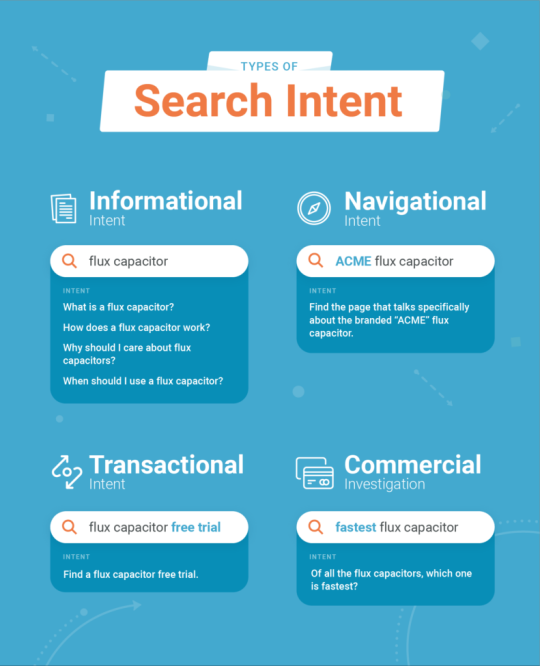
Search engines strive to provide the best possible experience for its users, and one way they have evolved to do so is through attempts to automatically identify user intent. As a result, most search queries are classified as navigational, or informational based on the search string itself, its format, and it's recent behavior's from users who have made identical searches in the past.
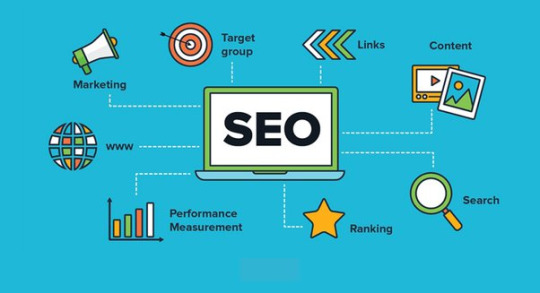
#Basics of Search Engine Optimization#Understanding the Basics of Search Engine Optimization#Search Engine Optimization#What is search engine optimization?#Understand What Search Is#Types of search intent#Searcher's intentions categories#digital marketing#seo marketing#seo#keywords#affiliate marketing
1 note
·
View note
Text
Become a Digital Marketing Pro: Learn the Basics NOW!
What is Digital Marketing?
Digital Marketing refers to the marketing of products and services of a company or business through digital channels such as search engines, websites, email, social media, mobile apps, etc. It involves the use of electronic devices and the internet. Digital marketing is often referred to as online marketing, internet marketing or web marketing.
Digital marketing mainly comprises Search Engine Optimization (SEO), Social Media Optimization (SMO), and Search Engine Marketing (SEM). We can say that it can be divided into three parts SEO, SMO, and SEM. However, Email Marketing and Affiliate Marketing have also become important components of digital marketing over the past few years. So, in digital marketing, we mainly deal with the following components:
SEO
SMO
SEM
Email Marketing
Affiliate Marketing
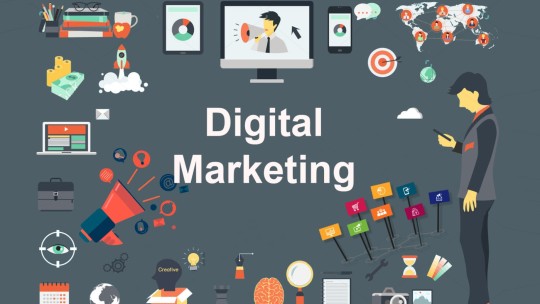
Why choose Digital Marketing?
Non-Digital Marketing, which is the traditional means of marketing, includes the usage of physical means of marketing. These are generally in the form of physical prints such as posters, flyers, newspaper advertisements, and billboards. Even at the first glance, it is quite apparent why almost every business is choosing to get into Digital Marketing.
The primary and the most fundamental reasoning for this is the amount of reach that is possible with it. There are smart devices everywhere, from televisions, laptops, computers, and tablets to smartphones. Even cars have smart systems enabled in them where you can access the Internet. All of these facilities present a blank canvas for advertising your brand.
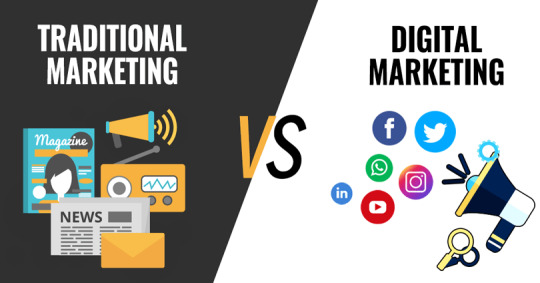
How does Digital Marketing work?
There are two ways in which Digital Marketing is implemented by brands and businesses:
B2C (Business to Customer)
B2B (Business to Business)
B2C (Business to Customer):
When a brand or a company has to sell a product or service to individual customers. In fact, 95 percent of the time, the ads and marketing that you see online are examples of B2C campaigns, e.g., an ad for a candy bar, a promotional video for a safety razor, or a movie trailer. All of these marketing efforts are targeting individual consumers and not organizations.
B2B (Business to Business):
B2B is conducted for very specific products. You wouldn’t generally see B2B products being advertised on platforms with traffic from the everyday crowd. These marketing campaigns are low profile, professional, and in most cases, marketed directly (or pitched) to the client. This client can be a small business or a corporate giant. We can take heavy-duty cooking machinery used in big fast-food restaurants as an example. What would be the point of running a TV ad for an industry-level chimney? None. This sort of marketing is done through B2B-specialized salesmen who use custom-made marketing material, PowerPoint presentations, and word of mouth to pitch their product.
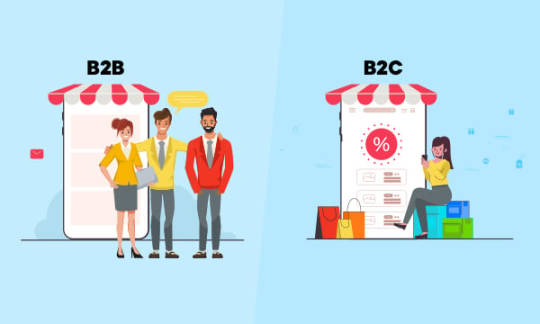
Not surprisingly, billions of marketing dollars spent on traditional channels is already starting to shift to digital marketing campaigns and this will continue to increase as the Web matures.
#digital marketing#digital marketing from basics#Introduction to digital marketing#how to learn digital marketing#what is digital marketing#online marketing#affiliate marketing#Basics of digital marketing#Why choose digital marketing#How does digital marketing work#learn digital marketing#Email marketing#search engine optimisation#seo#seo marketing
13 notes
·
View notes